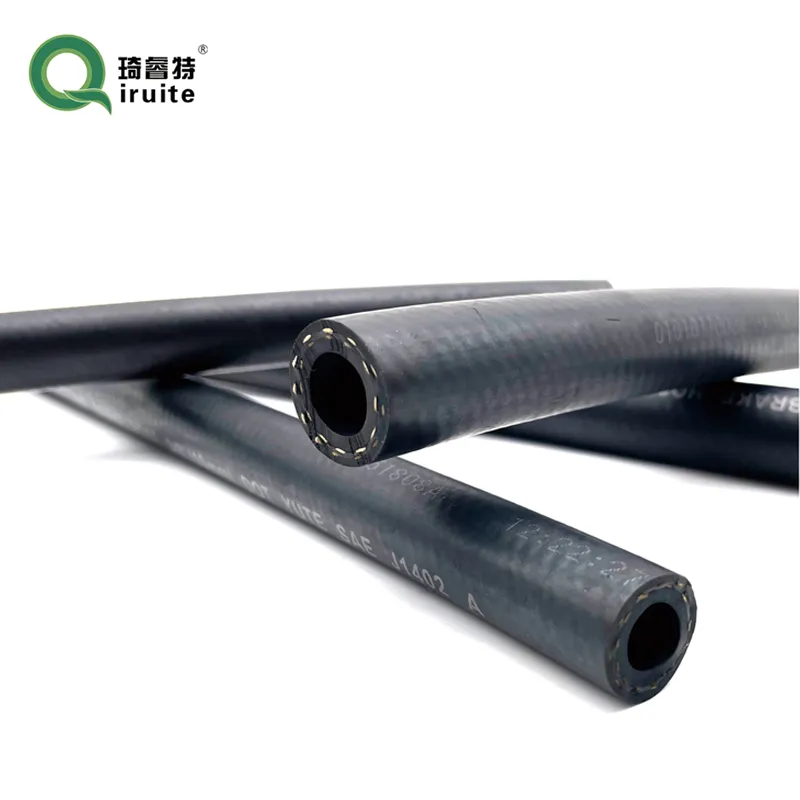Reliable Brake Line Solutions for Your Vehicle
When your brakes fail, nothing else matters. That's why quality brake line kits and components are non-negotiable for safe driving. Whether you need a full custom brake lines setup, durable air brake hose replacements, or just some brake line tubing for repairs, having the right parts can mean the difference between a smooth stop and a dangerous situation.

Why You Should Upgrade to a Complete Brake Line Kit
A brake line kit gives you everything needed for a full brake system overhaul - pre-cut lines, fittings, and often the necessary hardware. These kits save time and eliminate guesswork compared to piecing together individual components. For most common vehicles, you'll find ready-to-install kits that match factory specifications perfectly. The advantage of using a complete kit becomes clear when you're under the vehicle - no running back to the store for missing pieces. Whether you're repairing rust damage or doing preventative maintenance, starting with a complete brake line kit ensures you have all the right components from the beginning.
When Custom Brake Lines Are Your Best Option
Sometimes stock configurations just won't cut it, especially for lifted trucks, custom builds, or performance vehicles. That's where custom brake lines shine. These are made-to-order with your exact length and fitting requirements, accommodating suspension modifications or unique routing needs. Professional brake shops can bend and flare custom brake lines on-site, or you can order pre-made sets tailored to your specific make and model. The flexibility of custom solutions means no compromises in your brake system's performance, regardless of how much you've modified your ride. For off-road enthusiasts or hot rodders, investing in proper custom brake lines is as important as any performance upgrade.
Choosing the Right Air Brake Hose for Heavy-Duty Vehicles
Commercial trucks and heavy equipment rely on air brake hose systems that can withstand extreme pressures and constant use. Unlike hydraulic brakes, air systems require specialized hoses designed to handle both the pressure and the elements. When selecting an air brake hose, consider material composition (rubber vs. synthetic blends), temperature ratings, and reinforcement layers. Truckers know that a failed air brake hose isn't just an inconvenience - it's a DOT violation and safety hazard. Regular inspections for cracks, bulges, or abrasions can prevent costly downtime. Always keep spares in your rig, because when an air brake hose fails, you're going nowhere until it's fixed.
Brake Line Tubing: Materials That Make a Difference
The brake line tubing you choose affects both performance and longevity. Traditional steel lines are being replaced by nickel-copper alloys in many applications because they resist corrosion while remaining easy to bend and flare. Stainless steel brake line tubing offers premium corrosion resistance for harsh climates or show cars. For daily drivers, coated steel lines provide good protection at a reasonable price. When replacing brake line tubing, always use the correct diameter to maintain proper hydraulic pressure. Remember that even the best brake line tubing won't last if improperly installed - take care with routing to avoid chafing and use appropriate mounting clips.
Why a Brake Line Fitting Kit Saves Time and Frustration
Nothing stalls a brake job faster than discovering you're missing one crucial fitting. A comprehensive brake line fitting kit solves this by providing all the adapters, unions, and connectors you might need. These kits are especially valuable when working on older vehicles where original fittings may be corrode)d or when doing custom installations. Look for brake line fitting kits that include both metric and SAE sizes to cover all possibilities. Quality matters here - cheap fittings can leak or fail under pressure. For professional mechanics or serious DIYers, keeping a well-stocked brake line fitting kit on hand means never having to postpone a job for missing hardware.
FAQs About Brake Line Components
How often should brake lines be replaced?
Most manufacturers don't specify a replacement interval, but inspect brake line tubing annually after 5 years. In rust-prone areas, replacement around 10 years is wise.
Can I mix different types of brake line materials?
While possible using proper adapters from a brake line fitting kit, it's best to stick with one material type (steel, nickel-copper, etc.) for consistency.
What's the difference between DOT and non-DOT air brake hose?
DOT-approved air brake hose meets strict safety standards - never use non-certified hose in air brake systems as it may fail under pressure.
Are complete brake line kits vehicle-specific?
Yes, quality brake line kits are designed for specific makes/models to ensure proper fitment and performance.
How can I tell if my custom brake lines need replacement?
Look for swelling, cracks, or leaks in custom brake lines, and replace if fittings are corroded or lines show significant surface rust.
Your vehicle's stopping power depends on quality components - don't cut corners with inferior parts. Whether you need a complete brake line kit for a restoration project, durable air brake hose for your rig, or just some reliable brake line tubing for repairs, we've got you covered. Our selection includes all the necessary brake line fitting kits and materials to do the job right the first time. Don't wait until you hear that terrifying hiss of failing brakes - browse our inventory now and equip your vehicle with brake components you can trust. Click through to see our full range of brake solutions and get your order in today - because when it comes to brakes, "good enough" never is.
-
Quick Release Ball Joint – Tool-Free, Durable, Leak-TightRongorongoNov.13,2025
-
Spiral Guard Hose Protection — Durable, UV-Resistant WrapRongorongoNov.13,2025
-
SAE J1401 Brake Hose Specifications: Durable, Low ExpansionRongorongoNov.13,2025
-
SAE J1401 Brake Hose Specifications | DOT-Approved, DurableRongorongoNov.13,2025
-
Spiral Guard Hose Protection - Abrasion-Resistant, UV-StableRongorongoNov.10,2025
-
SAE J1401 Brake Hose Specifications | DOT-Certified, DurableRongorongoNov.10,2025

